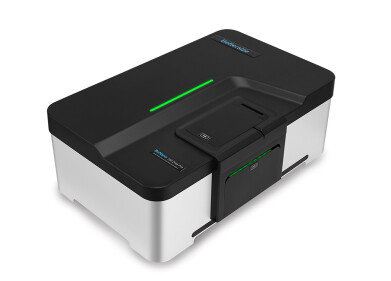Laboratory Products
Why Does Gluten Intolerance Happen So Quickly?
Sep 14 2019
According to the latest statistics from Mintel, around 7% of British adults actively avoid gluten because of an "intolerance" or "allergy" caused by the group of proteins. For patients diagnosed with the autoimmune disorder known as celiac disease, the symptoms can be severe.
So, what causes the negative reaction after eating gluten-rich products such as bread, luncheon meats, seasoned snack foods and soup mixes?
Linking celiac to CD4+ T cells and cytokines
New research published in the journal Science Advances explains how people with celiac disease possess CD4+ T cells that rapidly deposit immune chemicals called cytokines into the bloodstream when exposed to gluten proteins such as wheat, rye and barley. This reaction damages the small intestine and can trigger symptoms like abdominal pain and nausea within an hour of consuming gluten.
Until now, the only remedy for celiac disease has been strict adherence to a gluten-free diet. Though thanks to the new study pioneered by Massachusetts based vaccine development company ImmusanT Inc, new therapies for the autoimmune disease could soon become an option.
New autoimmune disease vaccine in the works
To develop the vaccine, the team injected gluten peptides under the skin of patients diagnosed with celiac disease. Others were given a drink laced with wheat flour. Around two hours after exposure to gluten, the team recorded an increase in levels of interleukin-2 (IL-2), a cytokine released by CD4+ T cells. They also noted a spike in other immune chemicals produced by CD4+ T cells.
“When patients ate gluten, symptoms and cytokines went up at the same time,” says Robert Anderson, chief scientist of ImmusanT Inc.
As cytokine levels increased, nausea and vomiting became more intense. By confirming the link between celiac symptoms and certain cytokines, Anderson and his team hope to develop new therapies that actively block CD4+ T cells that react to gluten. The research could also help doctors diagnose celiac disease by measuring levels of IL-2 in the blood, instead of exposing patients to tests that involve exposure to gluten.
From developing vaccines to trialing medications, laboratory equipment is critical to new healthcare research. With an industry turnover of almost £7 billion, GAMBICA, the Trade Association for Instrumentation, Control, Automation and Laboratory Technology in the UK, plays an important role in helping its members harness new opportunities and develop an international presence. For a closer look at the strategies being used, don't miss 'Finding an easy, cost-effective way to break into new markets.
Digital Edition
ILM 49.5 July
July 2024
Chromatography Articles - Understanding PFAS: Analysis and Implications Mass Spectrometry & Spectroscopy Articles - MS detection of Alzheimer’s blood-based biomarkers LIMS - Essent...
View all digital editions
Events
ACS National Meeting - Fall 2024
Aug 18 2024 Denver, CO, USA
Aug 25 2024 Copenhagen, Denmark
Aug 28 2024 Phnom Penh, Cambodia
Sep 04 2024 Chiba, Tokyo, Japan
Sep 04 2024 University of Warwick, Coventry, UK


















